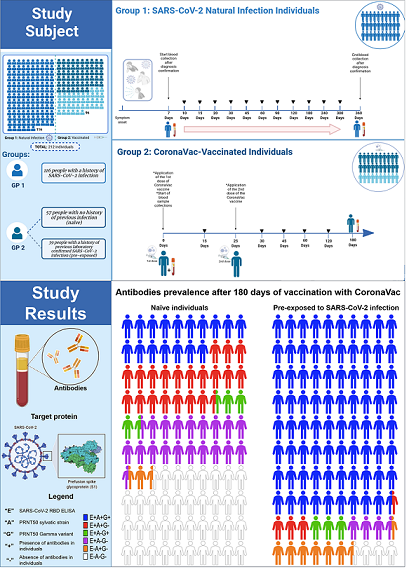The COVID-19 pandemic is the biggest public health threat facing the globe today. Multiple vaccines have been approved, however the emergence of viral variants such as the recent Omicron, raises the possibility of booster doses to achieve adequate protection. In Brazil, the CoronaVac (Sinovac) vaccine was used, however it’s important to assess the immune response to this vaccine over time. This study aimed to monitor the anti-SARS-CoV-2 antibody responses in those immunized with CoronaVac and SARS-CoV-2 infected individuals. Samples were collected between August 2020 and August 2021. Within the vaccinated cohort, some individuals had history of infection by SARS-CoV-2 prior to immunization and others not. We analyzed RBD-specific and neutralizing- antibodies. Anti-RBD antibodies were detected in both cohorts, with a peak between 45-90 days post infection or vaccination, followed by a steady decline over time. In those with previous history of COVID-19, a higher, longer, more persistent response was observed. This trend was mirrored in the neutralization assays, where infection followed by immunization resulted in higher, longer lasting responses which were conditioned on the presence of levels of RBD antibodies right before the vaccination. This supports the necessity of booster doses of CoronaVac in due course to prevent serious disease.

